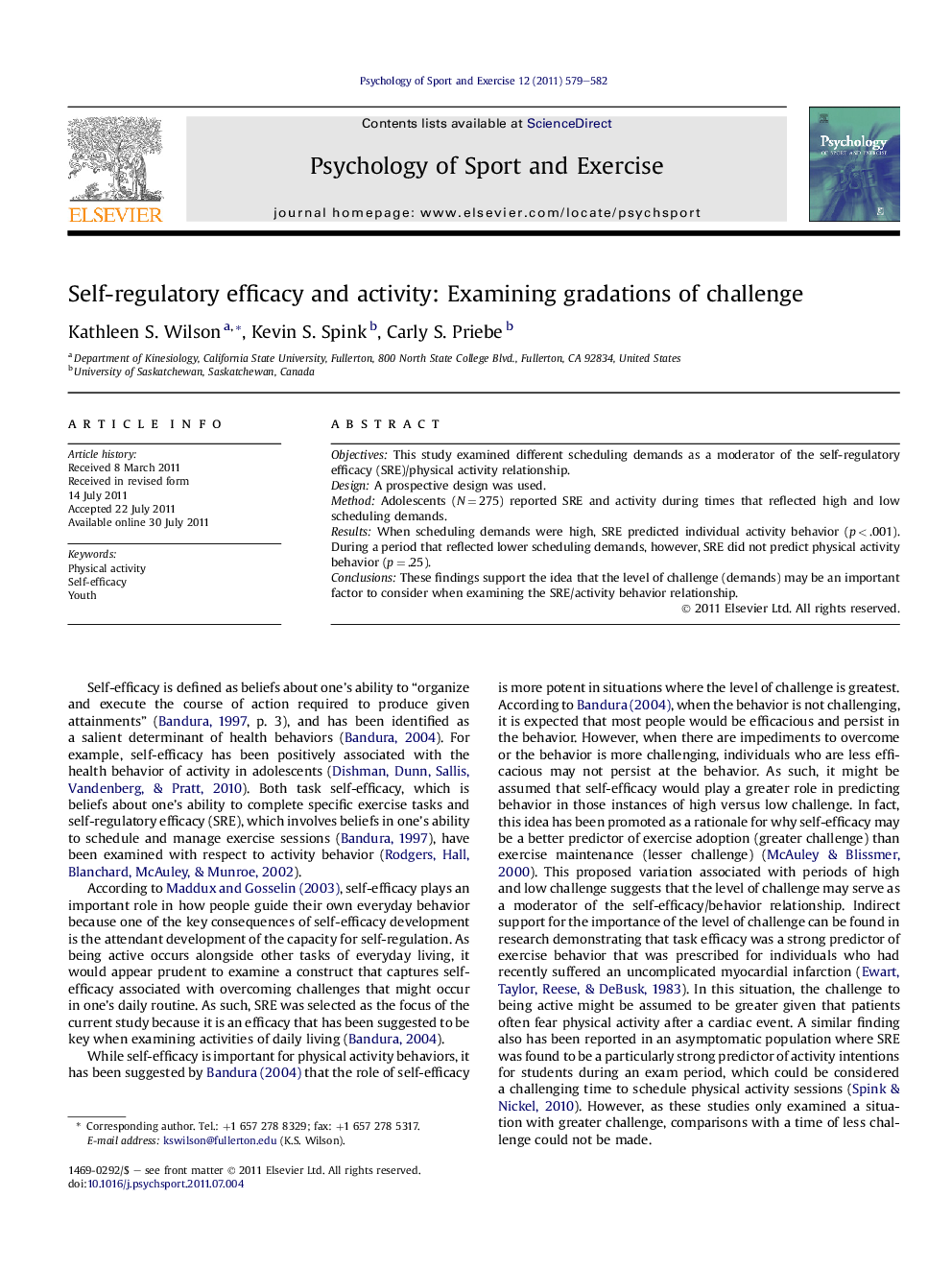| Article ID | Journal | Published Year | Pages | File Type |
|---|---|---|---|---|
| 894434 | Psychology of Sport and Exercise | 2011 | 4 Pages |
ObjectivesThis study examined different scheduling demands as a moderator of the self-regulatory efficacy (SRE)/physical activity relationship.DesignA prospective design was used.MethodAdolescents (N = 275) reported SRE and activity during times that reflected high and low scheduling demands.ResultsWhen scheduling demands were high, SRE predicted individual activity behavior (p < .001). During a period that reflected lower scheduling demands, however, SRE did not predict physical activity behavior (p = .25).ConclusionsThese findings support the idea that the level of challenge (demands) may be an important factor to consider when examining the SRE/activity behavior relationship.
► Level of challenge moderated the self-efficacy/physical activity relationship. ► Self-efficacy predicted activity during periods of high challenge. ► Supports idea that self-efficacy may be more potent during challenging periods.
